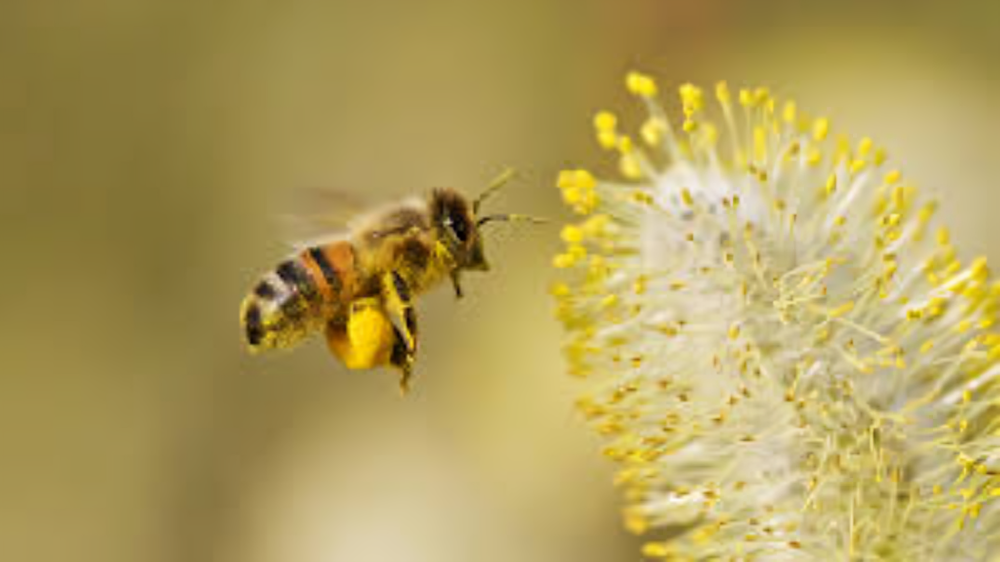Bee pollen, often lauded as a superfood for humans, is packed with nutrients, vitamins, and minerals. Its health benefits have gained popularity, including boosting the immune system, improving energy levels, and aiding digestion. As pet owners seek to improve their dogs’ health, many wonder if bee pollen is safe and beneficial for their canine companions. This article explores whether dogs can have bee pollen, its potential benefits, and considerations for its use. For more detailed insights, visit Pets Care Insiders.
What is bee pollen?
Bee pollen is a mixture of nectar, secretions from bees, and flower pollen that bees gather. It is rich in proteins, amino acids, enzymes, antioxidants, vitamins (like the C and B complex), and minerals (like calcium, magnesium, and zinc). These components make bee pollen a nutrient-dense supplement suitable for ingestion by people and dogs.
Is bee pollen safe for dogs?
Generally, bee pollen is safe for dogs when introduced correctly and in moderation. However, there are a few considerations to keep in mind:
- Allergies: Dogs known to be sensitive to environmental allergens or bee stings may react allergicly to bee pollen. Itching, swelling, respiratory distress, and gastrointestinal problems are all signs of an allergic reaction.
- Quality and Source: Ensure the bee pollen is sourced from reputable suppliers. Contaminants or poor-quality products could harm your dog. Organic and pesticide-free bee pollen is preferable.
- Dosage: Introducing bee pollen gradually helps monitor any adverse reactions. Start with a small amount and increase slowly. A typical recommendation is to start with a few granules and observe your dog’s response over a week before increasing the dosage.
Potential Benefits of Bee Pollen for Dogs
Bee pollen can offer several health benefits for dogs, similar to its effects on humans:
- Enhanced Immune System: Bee pollen contains antioxidants and bioflavonoids that can strengthen the immune system. It helps protect against free radicals and reduce inflammation, potentially leading to better overall health.
- Better Digestion: By breaking down food more effectively, the enzymes in bee pollen help with digestion. This can be helpful for dogs with a diet change or digestive problems.
- Energy and Vitality: Bee pollen is an excellent supply of amino acids and protein necessary for maintaining muscle mass and generating power. Dogs who work or exercise frequently may have more endurance and recover more quickly.
- Skin and Coat Health: Bee pollen’s minerals and vitamins help maintain a glossy coat and healthy skin. Regular bee pollen supplementation might improve the appearance of dogs with skin conditions or dull coats.
- Allergy Relief: Paradoxically, bee pollen can help manage environmental allergies in some dogs. Gradually introducing local bee pollen may desensitize the dog to local pollen sources, reducing allergic reactions over time.
How to Introduce Bee Pollen to Your Dog’s Diet
Bee pollen should be introduced to your dog’s diet cautiously and methodically.
- See your veterinarian. Consult your veterinarian before beginning any new supplement regimen containing bee pollen. They can offer tailored guidance for your dog’s requirements and medical background.
- Begin Little: Start with a small quantity of bee pollen. Adding granules to your dog’s food is a beautiful place to start. Pay close attention to your dog’s allergic reactions or stomach distress symptoms.
- Gradual Increase: If the dog tolerates the initial small amount well, gradually increase the dosage over several weeks. The recommended daily allowance for small dogs is half to a full teaspoon, and for larger dogs, it can reach up to a tablespoon.
- Monitor and Adjust: Watch for changes in your dog’s behavior, health, and energy levels. Stop using the product and consult your veterinarian if any adverse reactions occur.
Potential Risks and Considerations
While bee pollen can be beneficial, there are potential risks and considerations:
- Allergic Reactions: As mentioned, allergies are the primary concern. Always introduce bee pollen gradually and monitor your dog closely.
- Overdose: Too much bee pollen can lead to gastrointestinal issues, such as diarrhea or vomiting. Stick to recommended dosages and consult your veterinarian if in doubt.
- Interactions with Medication: Talk about possible interactions; talk to your veterinarian about bee pollen supplementation to prevent interactions where your dog takes medication.
Conclusion
When appropriately used, bee pollen can be a beneficial addition to your dog’s diet, providing several health benefits. You can safely introduce this nutrient-dense superfood into your dog’s routine by starting with small amounts and closely monitoring their response. Before beginning, please check with your veterinarian to ensure a new supplement fits your dog’s dietary needs. Bee pollen may improve your dog’s general health, vitality, and quality of life if introduced gradually and at the correct dosage.
